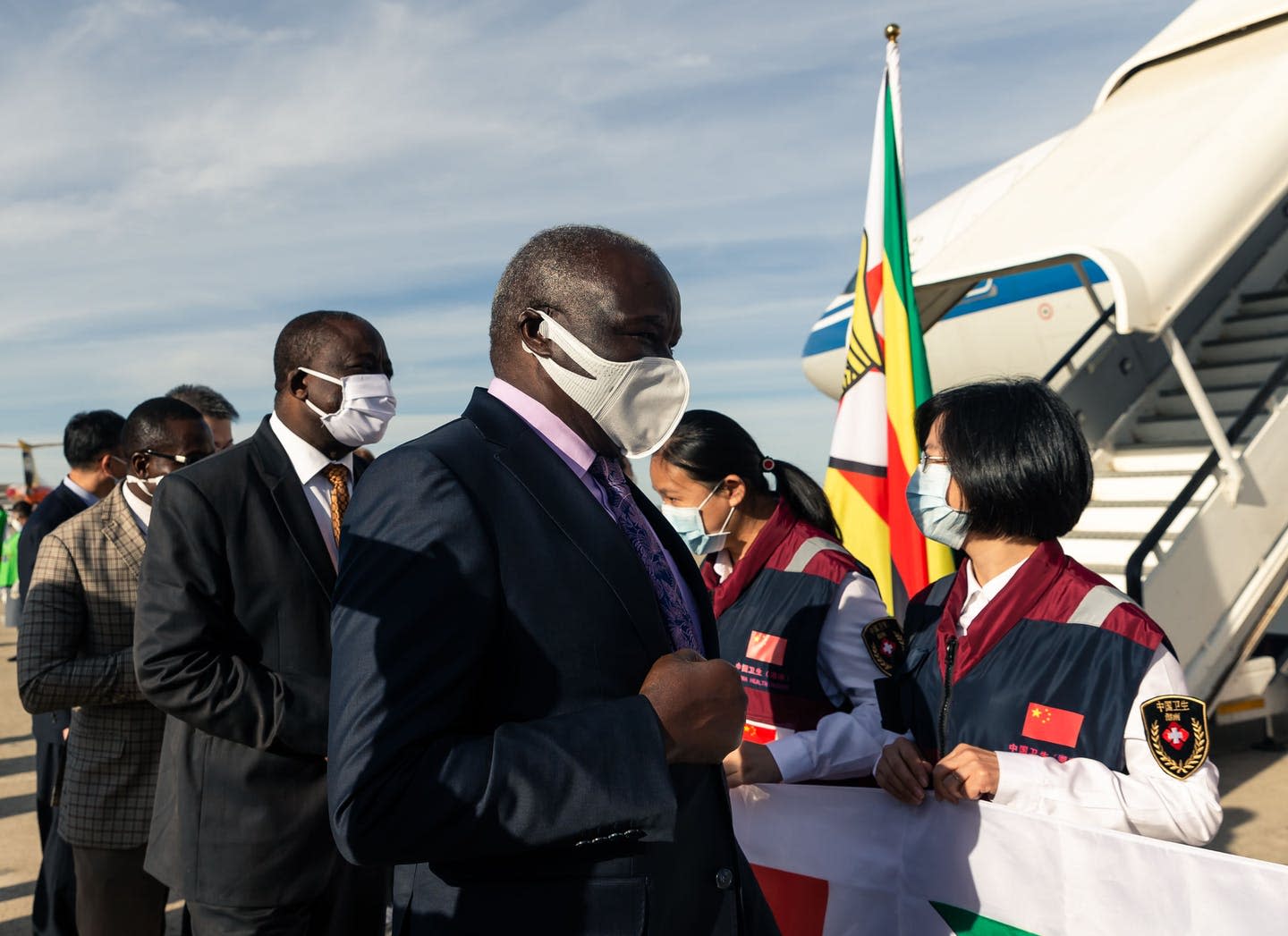Being Chinese in Africa was the worst possible stigma for much of 2020.
Africans vilified the Chinese, blaming them for the COVID-19 pandemic. At the same time, China also blamed Africans for the pandemic. Viral videos in March and April 2020 showed Chinese authorities forcibly expelling Africans from their homes in Guangzhou, China, for allegedly spreading COVID-19.
These actions generated uproar on the continent. On social media, there were calls for the deportation of Chinese residents in Africa. The Twitter hashtag #DeportRacistChinese trends across the continent.
Beijing sought to improve its image of the pandemic era in Africa with “mask diplomacy”, an effort to provide the continent with vaccines, medical equipment and personnel – and it worked.
As a doctoral student in geography who has written extensively about Africa, I recognize this “mask diplomacy” of China as part of his broader foray into Africa that emerged from the United States’ global retreat.
China building africa
China’s growing economic influence in Africa has been underway for two decades.
In North Africa, China has spent $ 11 billion since 2015 on the Trans-Maghreb highway – from Western Sahara to Libya – which will connect 60 million of the region’s 100 million inhabitants.

In East Africa, China built a road network and a railway line connecting Ethiopia and Djibouti that facilitated trade.
In southern Africa, Namibia partnered with China and the African Development Bank in 2013 to expand a $ 300 billion port. And Angola will benefit from a US $ 4.5 billion hydroelectric plant financed by China.
Similar infrastructure projects are underway in West and Central Africa.
Some Western leaders have described Chinese financing mechanisms as debt traps, suggesting that they burden African countries with high debts while increasing China’s power in the region.
But China’s willingness to finance Africa’s infrastructure has been viewed favorably by African leaders – especially as US trade with Africa has steadily declined for a decade.
“They say that China lent a lot to Africa,” said Rwanda President Paul Kagame in 2018, “but another perspective on the issue is that those who criticize China about debt give very little, and Africa needs financing to build capacity for development. ”
In 2002, US-Africa trade was almost double that of China with the continent: $ 21 billion, compared to $ 12 billion. In 2008, US-Africa trade rose to $ 100 billion.
In 2019, however, it had dropped to $ 56 billion. Meanwhile, China-Africa trade increased from $ 102 billion to $ 192 billion over the same 11-year period. Today, no other country comes close to matching China’s investments across Africa.
The Trump administration ignored Africa while China exerted its influence. Trump never set foot on the continent as president – the first U.S. president in 27 years to avoid Africa.

China first in Africa
Africa’s biggest economic partner, China was able to turn quickly after the coronavirus attack to offer help, attention and experience to the region.
The results were immediate.
Some African leaders who criticized China’s treatment of Africans in China during the early days of the pandemic changed their tones. Nigeria’s President Muhammadu Buhari, for example, recently declared that he was “pleased with the progress” of Nigeria’s relationship with China.
In addition, Beijing is taking powerful leadership positions within international institutions that play important roles in Africa. Of the 15 United Nations agencies, China heads four of them, including the Food and Agriculture Organization, or FAO, and the United Nations Industrial Development Organization. No country rivals China in this regard.
China is also establishing international organizations that compete with the West-dominated UN functions, including the Asian Infrastructure Investment Bank and the China Development Bank. In 2018, the Development Bank of China had financed 500 projects in 43 different African countries worth $ 50 billion.
Beijing is also courting influence and favoring in ways that go beyond loans.
China canceled $ 78 million in Cameroon debts in 2019 – money lent for infrastructure development – allegedly in return for Cameroon’s support for his candidacy as FAO director general. Cameroon, an influential country in Central Africa, stands out for its diverse economy and strong private sector.
The importance of a new US-Africa relationship
For the US, China’s growing influence in Africa has global implications. American companies are increasingly facing stiff competition from state-backed Chinese corporations in their bidding for contracts in Africa. If not tackled, Chinese companies could increasingly outperform American companies.
The Biden government has promised to become more involved with Africa, probably signaling a long-term US strategy to combat China in Africa.
But China’s strategic distribution of vaccines and PPE donations to African countries have created a lot of goodwill and embellished its reputation as a responsible global power that acts to protect vulnerable populations in Africa – which the US and Europe neglected during the pandemic.
The United States may be ready to commit again to Africa, but by the time they start reengaging, it may be too late to overtake China.
[Deep knowledge, daily. Sign up for The Conversation’s newsletter.]
This article has been republished from The Conversation, a non-profit news site dedicated to sharing ideas from academic experts. It was written by: Dinko Hanaan Dinko, Denver University.
Read More:
Dinko Hanaan Dinko is affiliated with the Global Research Network as a junior fellow.
